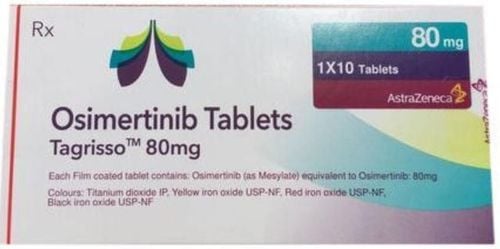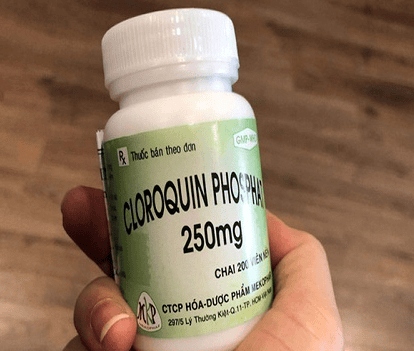This is an automatically translated article.
Azithromycin belongs to the group of drugs used to treat parasites, infections, viruses and fungi. The drug containing the main ingredient is Azithromycin, which is effective in the treatment of lower and upper respiratory tract infections, uncomplicated genital infections caused by Neisseria gonorrhoeae or Chlamydia trachomatis without multidrug resistance.1. What does Azithromycin 250 treat?
Azithromycin is an antibiotic belonging to the Macrolide group, which has a strong bactericidal effect by binding to the ribosomes of bacteria, preventing their protein synthesis.With the above mechanism, Azithromycin 250 is effective in cases of infections caused by sensitive bacteria such as:
Bronchitis; Pneumonia ; Skin and soft tissue infections; Sinusitis; Tonsillitis ; otitis media; Sore throat; Uncomplicated genital tract infections caused by Chlamydia trachomatis or Neisseria gonorrhoeae are not multidrug resistant.
2. Dosage of Azithromycin 250
How to take Azithromycin 250: Take 1 hour before or 2 hours after eating.
Dosage of Azithromycin in adults:
Treatment of upper and lower respiratory tract infections, skin infections: Use 1 dose of Azithromycin 500mg (2 tablets) in the first day. 4 days after taking Azithromycin 500mg dose 250mg/day; Sexually transmitted diseases: Use a single dose of Azithromycin 1g (4 tablets). Dosage of Azithromycin in children:
First day: Use Azithromycin dose of 10mg/kg body weight/day. From the 2nd to the 5th day, the dose is 5mg/kg body weight/day. Azithromycin dosage above is for reference only. The specific dose of Azithromycin will depend on the condition and the progression of the disease. To get the right dose of Azithromycin 500mg, patients need to consult their doctor or medical professional.
3. Azithromycin side effects
Azithromycin 250 is well tolerated, with a low rate of undesirable effects. The possible side effects when taking Azithromycin include:
Digestive disorders with symptoms such as: Nausea and vomiting, abdominal pain, flatulence, diarrhea; Increased or decreased neutrophils; Increase liver enzymes ; Rash, headache and dizziness; Anaphylaxis ; Angioedema. If you experience the above symptoms, you need to stop using Azithromycin 250 and notify your doctor or pharmacist for appropriate treatment.
4. Interactions with other drugs
Azithromycin 250 may cause an interaction reaction if combined with:
Erectile dysfunction derivatives. Concomitant use may increase the possibility of poisoning; Antacids should be taken at least 1 hour before or 2 hours after taking Azithromycin 250; When co-administered with Cyclosporin, the dose should be adjusted appropriately; Monitor the content of Digoxin when used simultaneously with Azithromycin 250. The article has provided information on the uses, doses and precautions when using Azithromycin 250. To ensure the safety of your health and maximize the effectiveness of your treatment, you need to take the medicine exactly as directed by your doctor, do not increase or decrease the dose on your own, or give the prescription to others to use.
Please dial HOTLINE for more information or register for an appointment HERE. Download MyVinmec app to make appointments faster and to manage your bookings easily.













